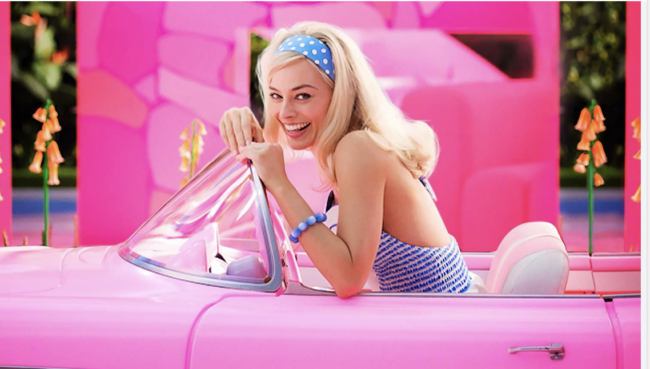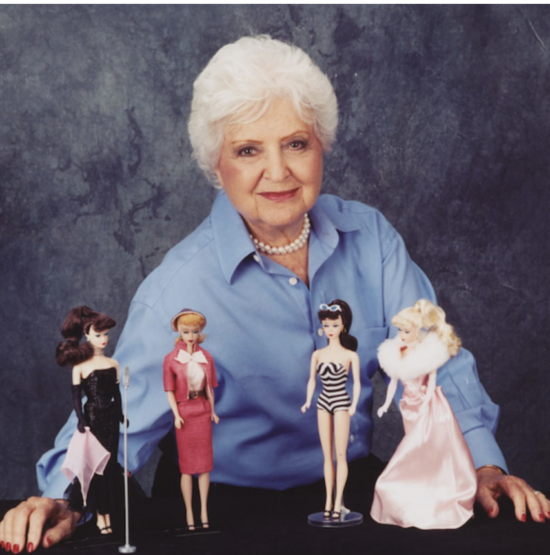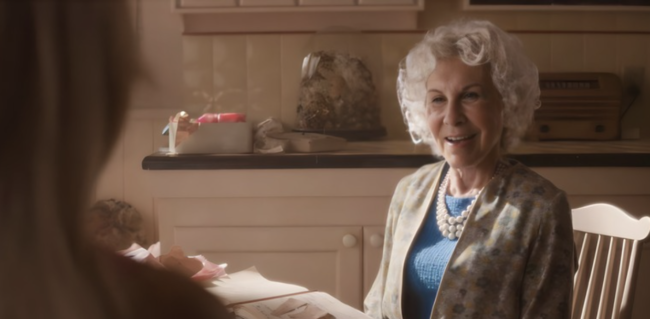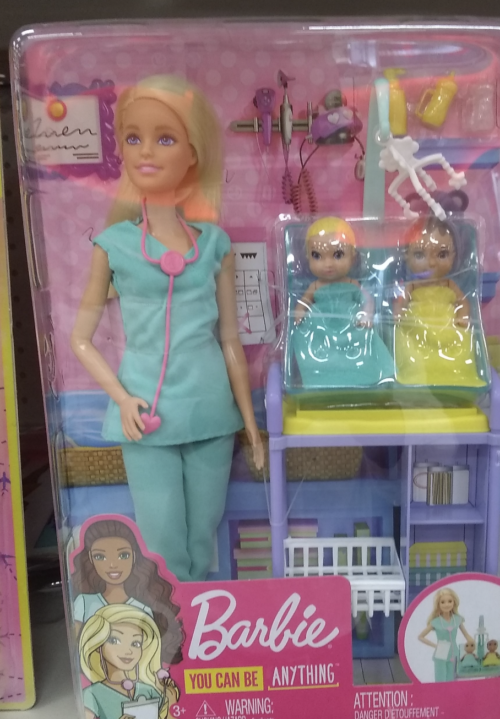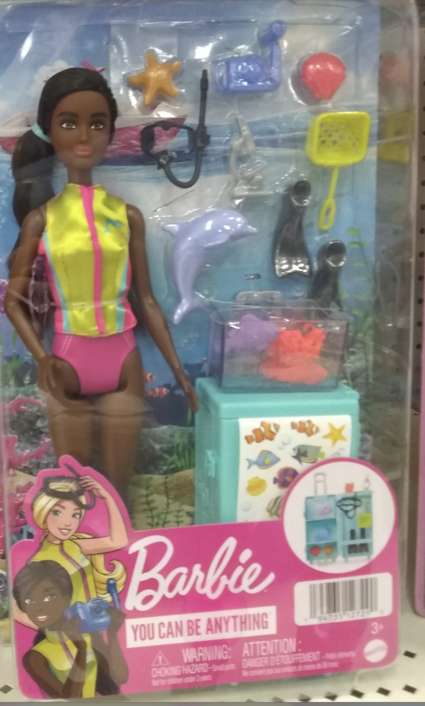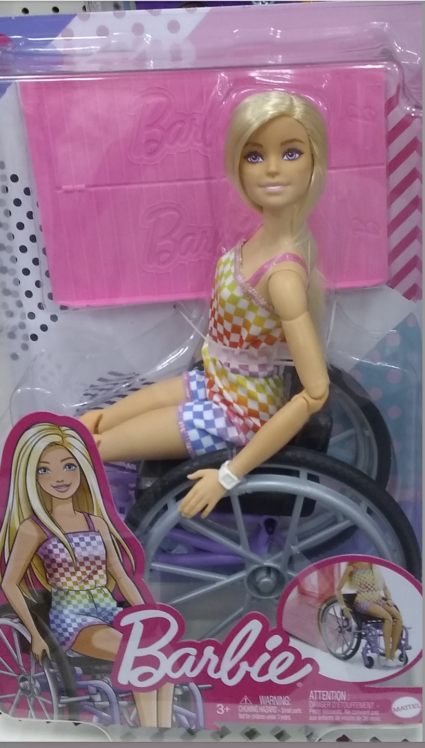GUEST POST by JANET WEIL
“Barbie” is the Talk of Summer 2023. I saw this hyped movie as a break from move-in housework, as I’ve just transitioned to the Barbie heartland of Southern California. Some laughs and a mild satire of the iconic doll were all I expected.
Instead, my mind was blown by this ambitious dive into the representation of the Feminine, the power of doll play, patriarchy and feminist resistance, the mother-daughter bond, and much more. I can’t stop thinking or talking about it, and I’m not alone – a google search of “Barbie” articles shows an eye-popping 1,140,000,000 results!
My post focuses on an aspect of the film that will get little attention in all those reviews and essays: Barbie’s encounters with two old women.
[Spoiler alert] In a quest to find her “owner” whose play is making her think of death, Barbie the Doll, played by the brilliant Margot Robbie, transitions into human form. Overwhelmed with emotions on entering Real World – so different from “every day is the best day” Barbieland – she sits at a bus shelter, crying. She then turns to a plainly dressed old woman seated next to her and says in amazement, “You’re beautiful.” The woman replies emphatically, “I know.”
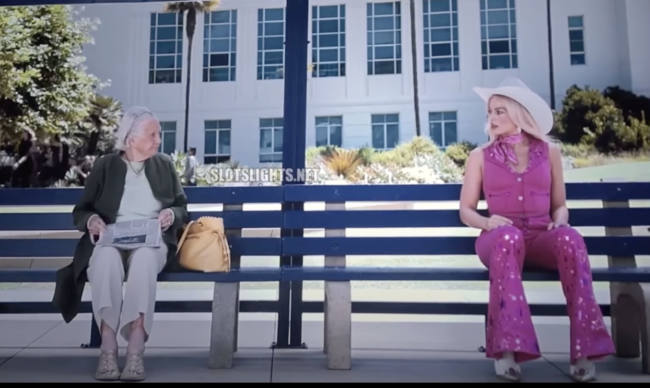
The bus shelter scene in “Barbie,’ where the old woman is 91 year-old Ann Roth and Margot Robbie is Barbie
This interaction feels well-meant by the screenplay writers but totally false. Since no “Old Barbie” exists in Barbieland, I would expect Barbie’s reaction to be a more honest, “What happened to you?” showing her surprise at an “imperfect” woman. The old woman’s reaction also feels forced and Politically Correct.
Every woman I have ever known to be complimented on her looks by a younger woman, let alone one as stunning as Margot Robbie, denies or deflects the remark, often complimenting the younger woman effusively in return. A more genuine exchange would have highlighted the reality of the loss of youthful looks, and showed Barbie learning that not all women are stereotypically beautiful – nor do they (we) need to be.
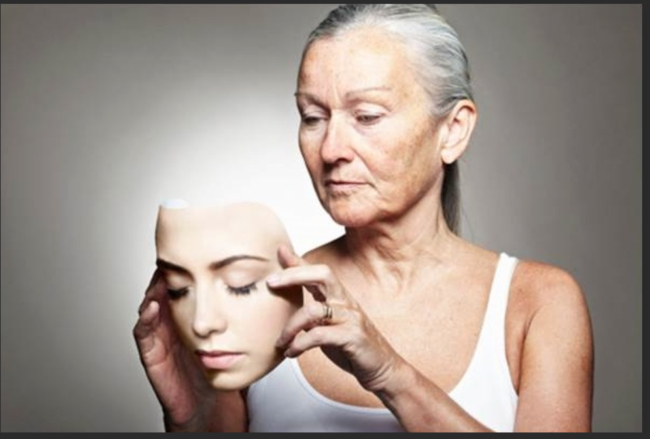
Unlike the older woman at the bus shelter in “Barbie,” many older women struggle to accept the loss of their youthful features
The only developed interaction Barbie has with an old woman is with a ghost – her creator Ruth Handler, played by Rhea Perlman with bluntness and warmth. In two scenes, the first showing Ruth in an old-fashioned kitchen in Mattel Headquarters and the second in some nebulous zone between Real World and Barbieland, Barbie reaches out to the woman who thought her up.
Barbie was the expression of a Jewish woman’s (“five feet nothing with a double mastectomy” in Ruth’s wry self-description) fantasy of a perfect feminine specimen,1950s assimilated California-style: blonde with big breasts, a tiny waist, feet always ready for high heels, surrounded by every consumer good a gal could want.
Ruth tells the yearning-to-be-real Barbie “I knew you (her creation) would surprise me.” Tenderly, she assures Barbie that the doll doesn’t need her permission to become human. The scene, my favorite in the film, beautifully shows how young women long for approval and release into adulthood from their mother figures.
Barbie the Doll has evolved into something much more than Ruth Handler ever imagined, representing young women in a wide variety of occupations and interests, ethnicities and (to a lesser extent) body types. Gone are the massive hard breasts contrasting with the impossibly tiny waist.
On a recent trip to Target, I found Barbies who play volleyball, practice yoga, work in medicine, and live as mermaids. I saw one Barbie in a wheelchair. Plenty of Barbies are still sold surrounded by kitchenware, or “dolled up” for a party.
Could there ever be “Old Barbie”? Not “aging Barbie,” a term of abuse for older women trying too hard to retain the young Barbie look, but a representation of a happy old woman in her “perfect” world? Would old(er) women want this doll? And what would that mean for the girls who played with such a doll?
Or maybe we are all better off without an attempt to represent such an ideal – to make money off our fantasies and insecurities.
 A retired ESL teacher and fired-up peace and climate justice activist, Janet Weil resides in Palm Desert, California, with her husband. An associate (non-military) member of Veterans For Peace, Janet serves on the Climate Crisis and Militarism Project. When not engaged in activism, she enjoys travel, visiting libraries, photographing desert flora, and time with friends and family.
A retired ESL teacher and fired-up peace and climate justice activist, Janet Weil resides in Palm Desert, California, with her husband. An associate (non-military) member of Veterans For Peace, Janet serves on the Climate Crisis and Militarism Project. When not engaged in activism, she enjoys travel, visiting libraries, photographing desert flora, and time with friends and family.
